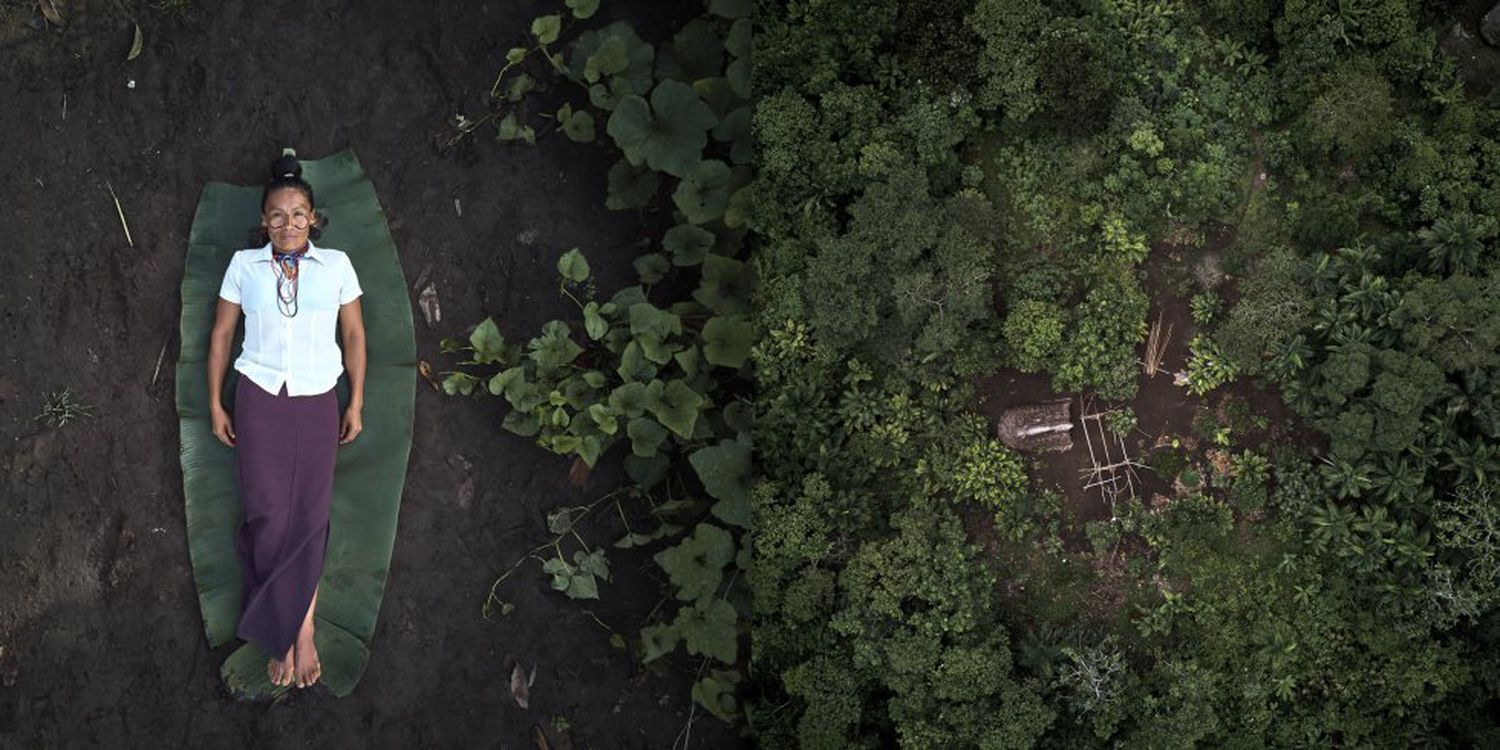Veónika Yunkar, or Vero Cestsenk in the Achuar language, is a brave woman. She has taken control of her own story. Ver's fight is to improve the lives of Achuar women and infants — she works to reduce maternal and infant mortality. This is her way of contributing to the protection of the forest. Vero does her work with pride and determination.
"We are women. Like the forest. This is why we should be respected. We are sacred, like the forest," she explains. But Vero's work is complex. She has to combine respect for the sacredness of maternity with the need to improve the health of Indigenous mothers.
Verónika Yunkar, ou Vero Cestsenk em seu nome indígena achuar, é uma mulher corajosa. Uma mulher que assumiu o controle da sua própria biografia. A luta de Vero é melhorar a vida das mães achuar e de seus bebês, ajudar a melhorar a saúde das mulheres e de seus filhos e reduzir a mortalidade materna e infantil. Essa é sua maneira de contribuir para a defesa da floresta, que Vero mantém com orgulho e determinação.
"Nós somos mulheres. Como a floresta. É por isso que devemos ser respeitadas. Somos sagradas, como a floresta”, diz. Mas o trabalho de Vero é complexo. Ela tenta combinar a dimensão sagrada da maternidade com a melhoria ativa da saúde das mulheres indígenas.
To read the rest of this story in Portuguese, visit El País.
